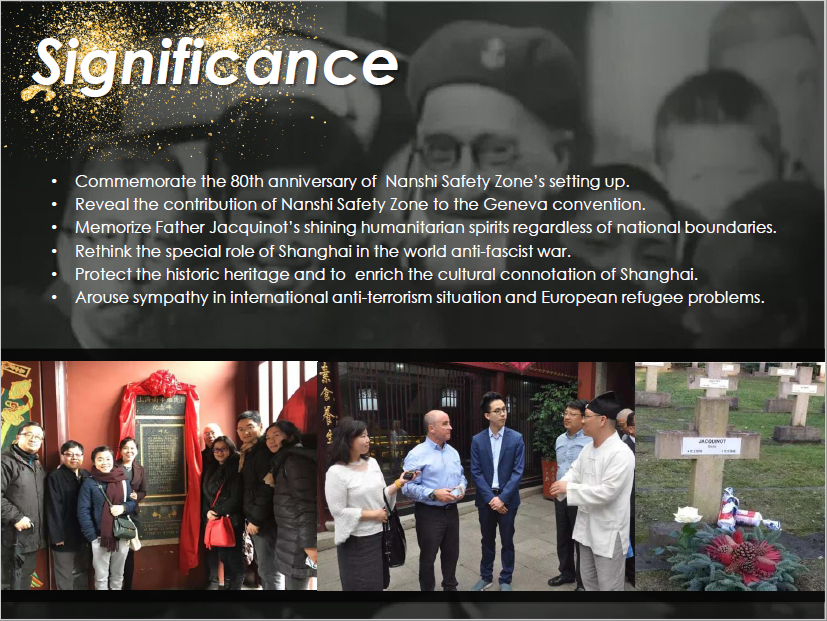
ALL MEDIA PROJECT: In Search of Robert de Besange
2019-11-29 09:38:59
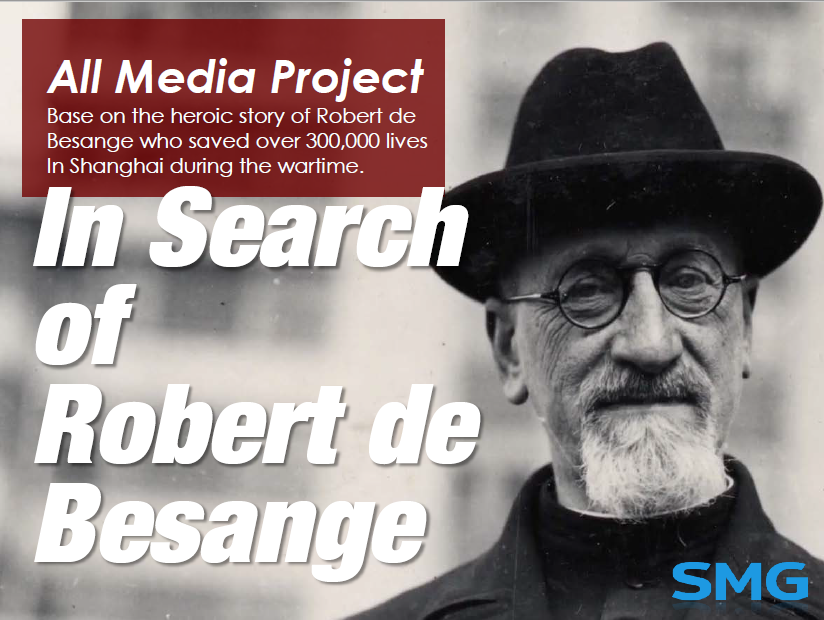
On August 13, 1937, the Battle of Shanghai broke out. Tens of thousands of refugees in Shanghai were displaced and their lives were at risk. At that time, a French priest, Robert Jacquinot de Besange served as president of the China International Famine Relief Commission and vice president in the Executive Committee of Shanghai International Committee of the Red Cross. Father Jacquinot gave himself a Chinese name Rao Jiaju when he lived in China. Working with other charity organizations and social forces, Father Jacquinot (Rao Jiaju) conducted relief work for refugees.“Nanshi Refugee Zone” that he set up was credited with saving the lives of more than 300,000 refugees within 4 months. He left Shanghai in June, 1940. Later, he continued his relief and protection work for refugees in Hankou (China) and Berlin (Germany). He saved numerous lives during the war time. In September, 1946, he passed away in Berlin. “Nanshi Refugee Zone” that he set up in Shanghai was written into the Fourth Geneva Convention as a model for civilian protection in wartimes. However, his contribution for refugee relief work in Shanghai hasn’t been widely acknowledged for historical reasons.
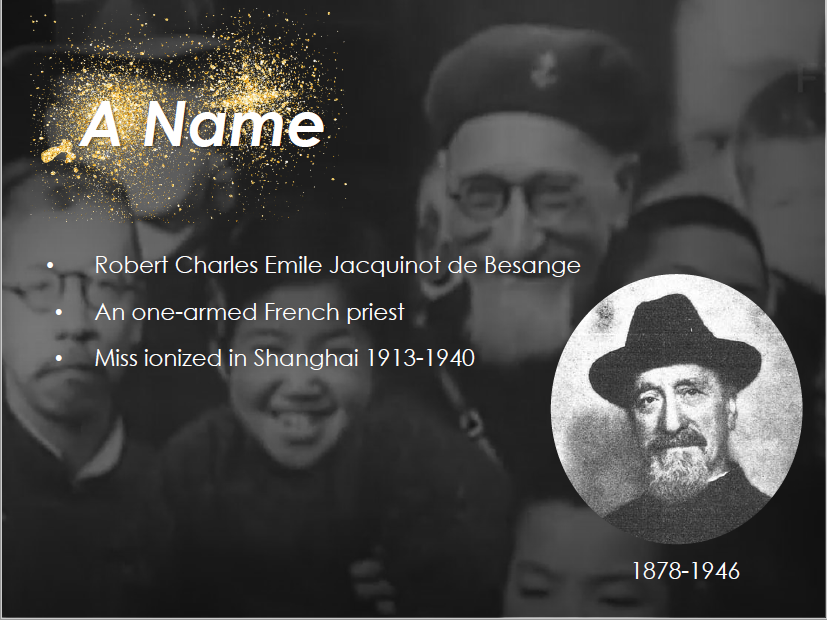
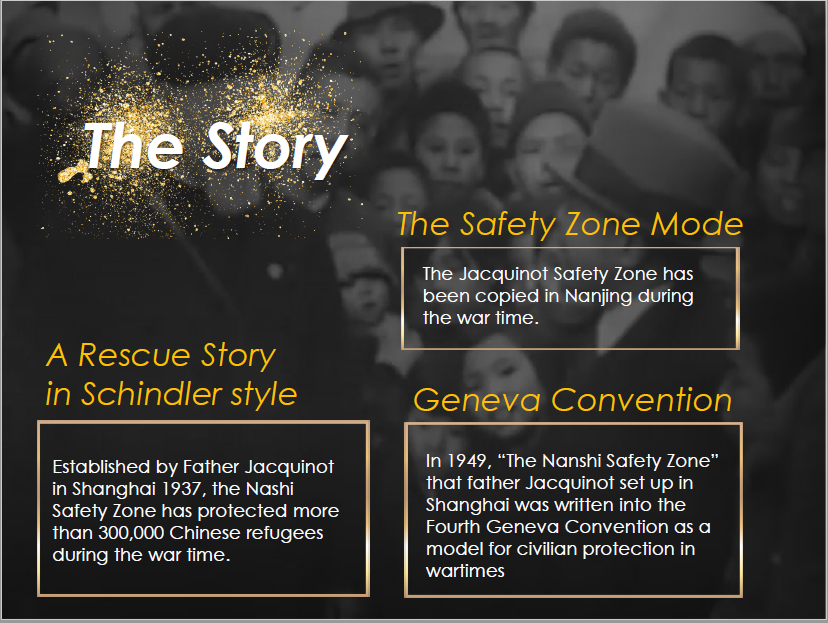
Luckily, from 2015 on, a group of media workers and archive researchers from Shanghai Media Group worked together to unfold what had been long ignored by history. They worked hard on collecting and researching the video and image records. Meanwhile, they looked for and visited many witnesses to that history. For two years, this team made their way through China, Japan, France, America, Switzerland and so on. They interviewed more than 20 people who had experienced that history and come out from the refugee zones. Finally, they gained some exclusive and precious audiovisual records. On that basis, they produced the documentary “Looking For Rao Jiaju”. Through researching historical videos and archives and visiting historical witnesses, they hope that the contribution to international humanitarianism of Robert Jacquinot de Besange (Rao Jiaju), father of refugees, could be recognized.

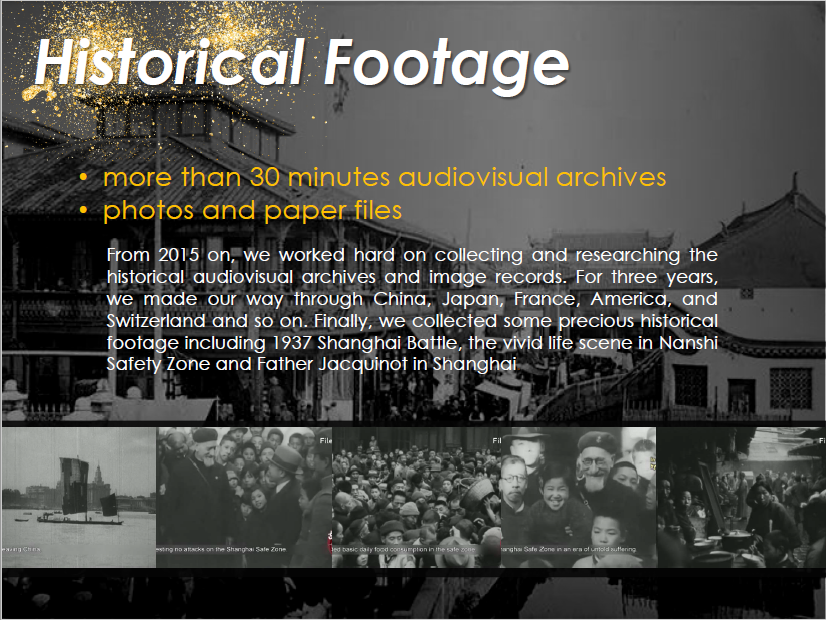
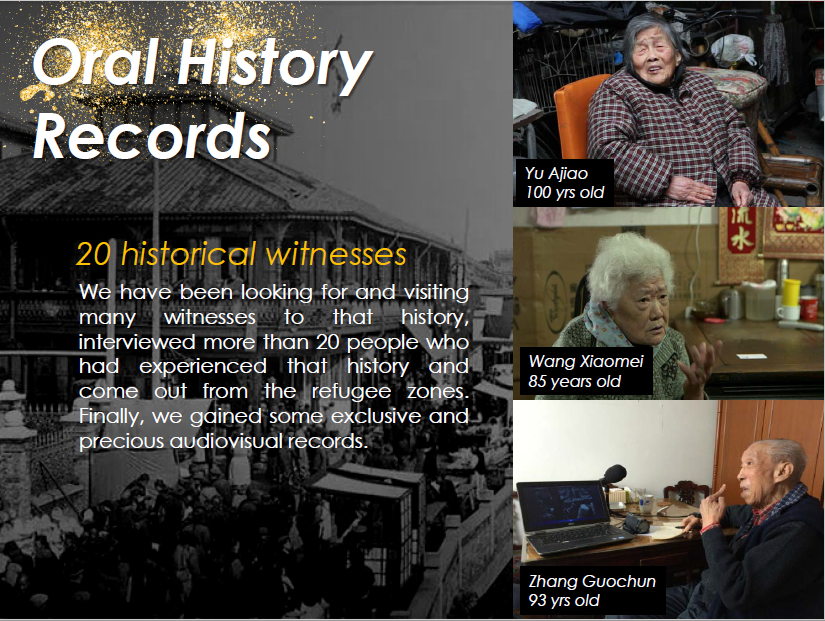
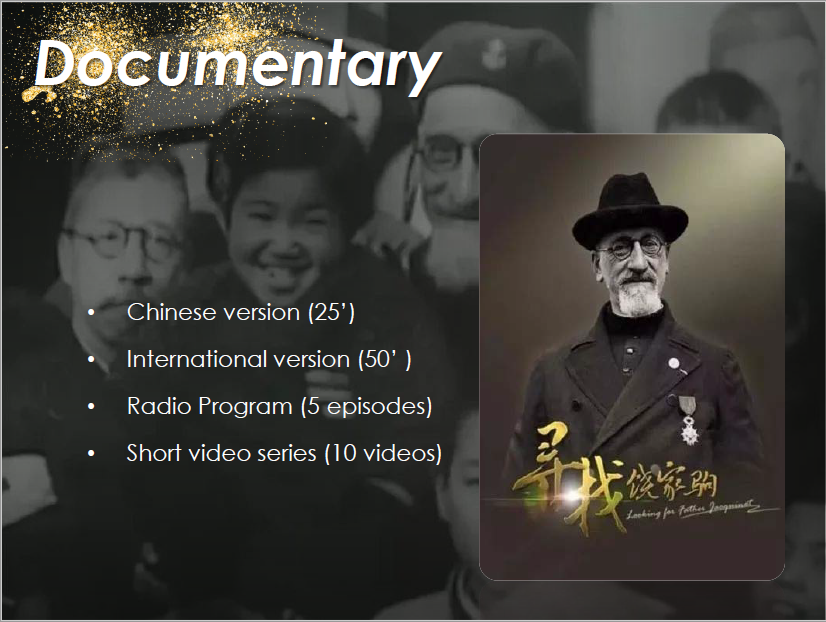
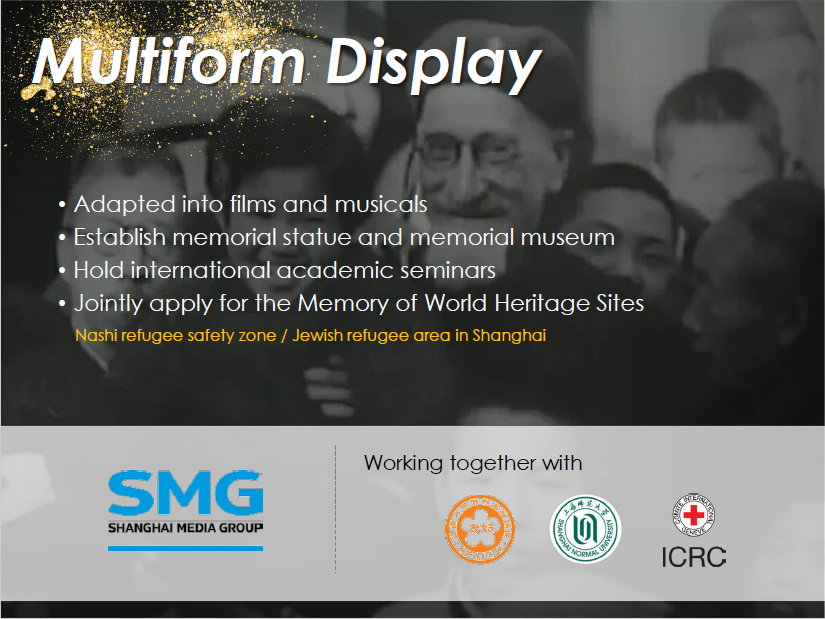
![]()
